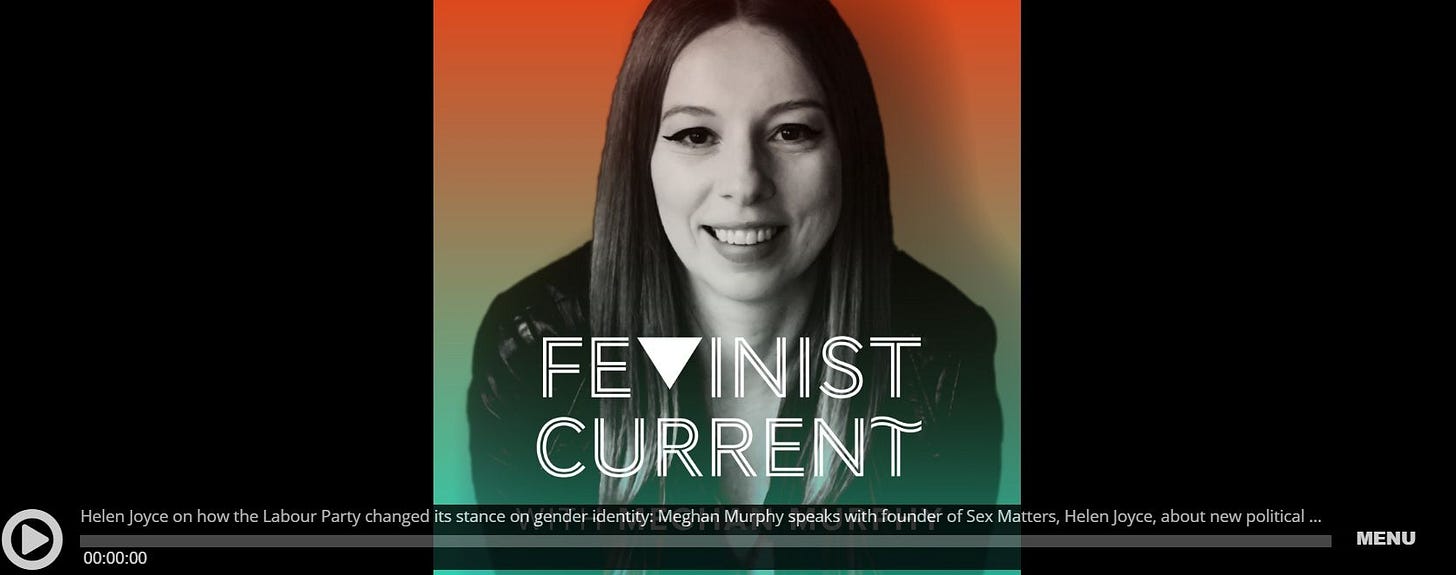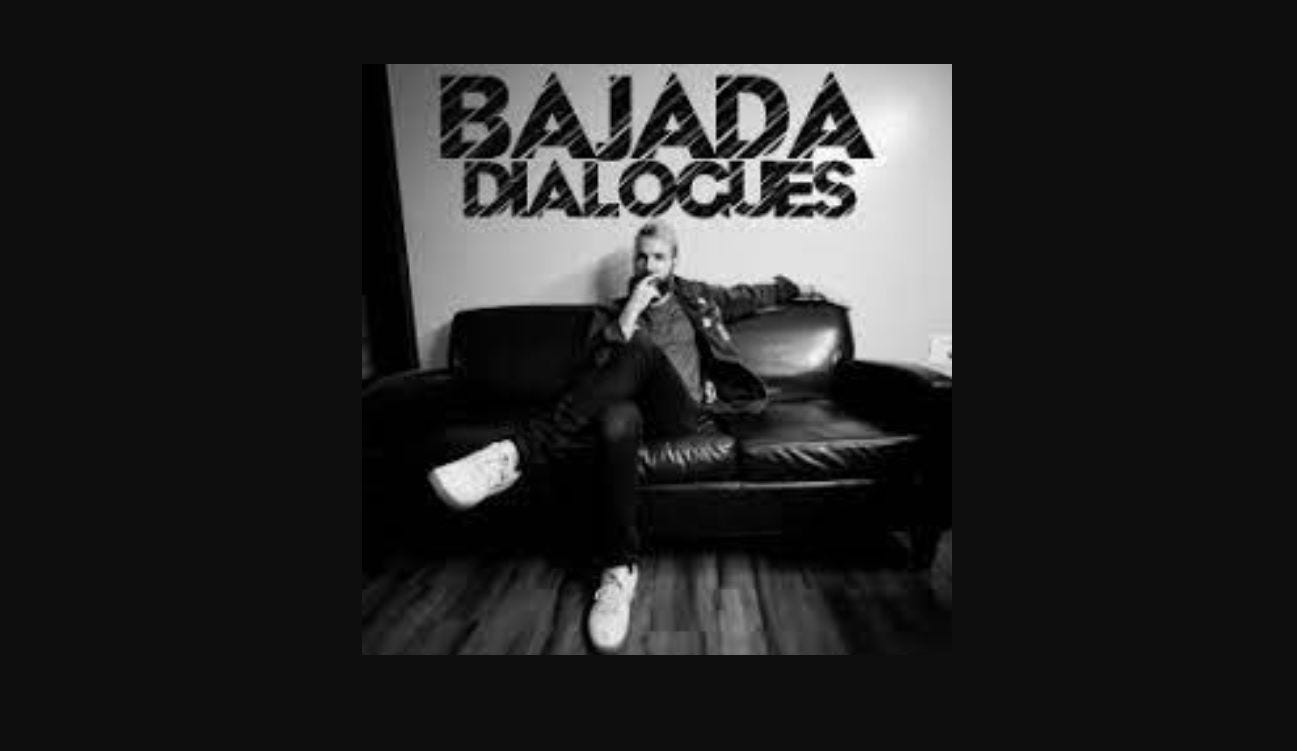Thinking aloud
For me, is thinking allowed; a roundup of recent interviews and what seem to me to be the most interesting points
I tried to take a break in August; I really did. I didn’t succeed. Behind the scenes there has still been a lot going on, what the increasing sense of urgency in Westminster as politicians’ minds focus on the upcoming general election.
If you are not a subscriber to my weekly newsletter, you might like to sign up for free updates. I hope that in the future you might consider subscribing.
Those within No. 10, and those who have the ear of the prime minister and his closest advisers, divide into two broad camps. One thinks that trans issues are still low salience, and that a “culture war” is distasteful. They think, surely rightly, that the next election will be decided on bread-and-butter issues such as cost of living.
The second group largely accept that the election is Labour’s to lose—after 13 years in government the Conservatives look tired; the economy is in the doldrums and there is an overwhelming sense that it’s “time for a change”—always the biggest boon for an opposition. But they also think the prime minister is making a huge mistake not coming out forthrightly against the gender madness, both because it is madness and because they think it offers the best, perhaps sole, hope of at least limiting the carnage at the next election.
One difficulty for anyone within the Conservative Party who recognises the problems is that all the worst stuff has happened while they have been in office. It’s tough for the prime minister to say “the trans madness must stop” when his party oversaw it, and appointed and continues to pay the people who made it all happen. It’s the government who appointed Dr Michael Brady as national advisor for LGBT Health for NHS England in 2019, and it is he who has most persistently pushed policies such as asking patients’ pronouns on every interaction and removing words such as “woman” and “female” from all mention of women’s health.
It’s not Stonewall doing these things any more, at least not on its own: the enemy is now within the citadel. Journalist Martin Beckford at the Daily Mail has used a bunch of freedom-of-information requests to get hold of NHS trusts’ internal policies on trans issues—and the stories he’s run on the results demonstrate how profoundly the rot has infected public institutions. Here’s a story he’s written on gender policies, and another on the rainbow badge scheme.
The biggest current battle is over the long-delayed schools trans guidance. What’s been leaked makes it clear that finally—finally—government lawyers have woken up to widespread unlawful practice; sadly, it also makes clear that they still think schools have to tiptoe around children who claim to be members of the opposite sex, or of neither sex. Without clear, unambiguous guidance stating that under no circumstances can a school conceal a child’s sex, or insist that teachers and other pupils must avoid referring to it, schools will continue to be gender-dysphoria factories and will continue pumping out kids who turn up at gender clinics demanding hormones and surgeries.
Anyway, all this to say that instead of taking a break I, and everyone else who sees what’s happening in schools and health care as an escalating catastrophe, was doing everything possible to explain this to anyone who would listen. Around all this I did some interviews. So I thought that for this issue I’d share these, with some thoughts on what was most interesting in each. There is of course some repetition, but the political position and personal style of the various interviewers varied so much that each interview went in a different direction.
I’ll start with the biggie in terms of viewer numbers, namely the one with Jordan Peterson—my second conversation with him, and one I think worked out really well. The pleasure was in being asked different questions to those that arise during my own self-interrogation and rumination, and that nobody I know personally thinks to ask me either. I could see why Jordan was successful in clinical practice as a psychologist.
After our first interview, recorded last year, was taken down from YouTube—we think because of the mention of Ellen/Elliot Page being female—Jordan’s producer decided to put only a half-hour cut of our less controversial opinions on YouTube (that is the one embedded above, and what a world we’re living in). The full version is available on Twitter/X, and also on the usual podcast platforms.
My Catholic upbringing definitely influences my moral intuition, and the metaphors I use—I think often of Christ’s injunction to tie a millstone around your neck and cast yourself into the sea to drown than to lead a child astray. But my religious education was very New Testament (the Old Testament is quoted much more by Protestants, at least that was the case in the Ireland of my youth). So it’s fruitful to have some new moral myths to ponder.
Listening back, the things that struck me most were the discussion of how lying about binary sex is the biggest lie that can possibly be sustained about human nature, and of truth as an adventure and lies as boring. I’d be interested to know what jumped out at readers.

I also spoke with Lotus Eaters, which was set up by Carl Benjamin, aka Sargon of Akkad (the video plays on their own website). His politics are nowhere close to mine (understatement of the year), but the purpose of free speech isn’t to convince people who already agree with me. I’m more interested in shifting people who don’t. Nothing sharpens your arguments than having to decide whether to incorporate or reject contrary points.
I actually really enjoyed having a robust conversation with a smart young self-described pre-Vatican II Catholic anti-feminist. I know what this sort of Catholic thinks, since plenty of people in the Ireland of my youth thought that the so-called “second Vatican Council”, which ran from 1962 to 1965 and sought ways to make the church more relevant and less stuffy), was the moment when the church lost its moral compass. And my feminism wouldn’t be worth much if I wasn’t willing to defend it against all comers.
Next up is a conversation with Trish Wood, a prizewinning Canadian veteran investigative journalist. This interview was less challenging, since Trish’s position is less contrary to mine than those of my interlocutor at Lotus Eaters Connor Tomlinson, on a wide range of issues. But we got into some more stuff about children and families (young men like Connor don’t usually have the faintest clue about child safeguarding, which is a big problem when it comes to education policy, in particular, because the ranks of SPADs and think-tanks are full of them).

I then caught up with someone I know in person and like very much, Canadian activist Meghan Murphy. Meghan is basically a radfem who has become so disillusioned with the nonsense that is spouted in the name of feminism that she has stopped calling herself a feminist—I haven’t done the same myself, but no longer think it impossible that one day it will become too painful to be associated with the braindead nonsense being spewed from academic departments and political parties in feminism’s name.
Meghan and I talked a fair amount about TERF Island politics, so if you want my analysis of why the UK Labour Party is slowly shifting on trans issues, this is the podcast for you. (We also bantered a bit about Matt Walsh, so that was fun as well.)
Next comes another audio-only offering, this time with Jason Bajada, another Canadian (it’s good to see independent voices interrogating the batshit trans policies of Canadian national and provincial governments, because mainstream journalists certainly aren’t). He and I delved into childhood dysphoria and its meaning, and what parents can and should do—though there’s loads more to be said on that. And I did my best to explain why it’s young women who are the footsoldiers to this movement, despite also having the most to lose.
This interview perhaps covered more familiar material for me, but was enjoyable all the same—there’s always a better way to phrase something, a sharper point to make, a new angle.
My interview with Peter Boghossian came out before the break, but I might as well share it here again, since I’m collecting links. I think the most notable things from this interview were the bits about trans identification being a culture-bound syndrome—I no longer think, if I ever did, that there is a naturally occurring phenomenon that can sensibly be labelled “trans person”, any more than fa’afafine or muxes or hijras or sworn virgins mean anything outside the culture in which they are found. There are zero of any of these in, say, Ireland. And likewise, there are zero people who understand themselves, and are understood by their society, to be “really women” despite having been “assigned male at birth”, or vice versa, in Samoa, Oaxaca, India or Albania—at least there weren’t, until the idea that this was possible was imported from America.
Peter also seemed pretty interested in the bit about how parents who have transed their kids will be the ones who must keep fighting until their dying breath to destroy the recognition of the two sexes as recognised legal categories. When you’ve promised your child that they can be members of the opposite sex, you’re making a promise to a child who is standing at a fork in the road that leads them to choose one path and not the other. But the promise is made on behalf of society at large—that they will be able to spend the rest of their life being accepted fully by absolutely everyone as actual members of their fictitious sex, or at least that anyone who refuses to go along with the fiction will be drummed out of society. If society refuses to make good on that promise, then the parent has done something terrible—and so they must keep fighting.
And finally, if you didn’t have a chance to listen to my interview with Richard Dawkins, which I shared before the break, here it is again.
So far at least YouTube hasn’t taken it down, though it did demonetise it. Richard wrote about what happened next in an article for the Evening Standard, which is running a series on the threats to free speech...
If you would like to become a paid subscriber and receive full access to my weekly newsletter, you can sign up here.



